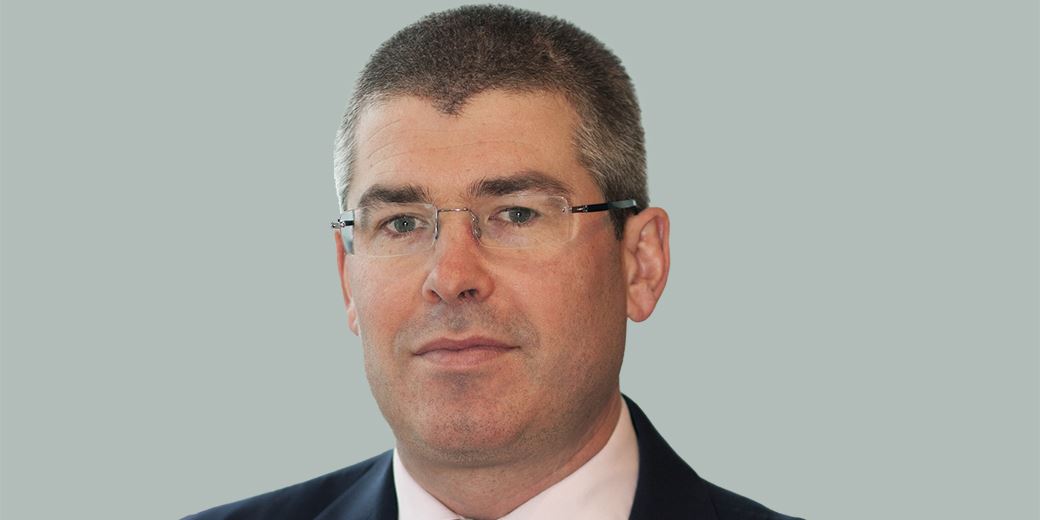There might be light at the end of the tunnel, but it ain’t here yet.
Webber keeps his chips simmering during growth setback

Latest Newsletter
Value stance rewards managers with first AAA rating
The year comes to a close with a host of managers gaining their AAA wings.
Real Life: A cheaper, smarter way to fly business to the US
Companies are clamping down on travel costs. Here’s how to travel in comfort while keeping the expenses department happy.
Community
Warren Buffett once said ‘bad news is an investor’s best friend’, but it is hard to be this optimistic when you are dealing with a volatile economy that is still recovering from a pandemic, not to mention soaring interest rates, rising inflation and growing geopolitical tensions.
Growth stocks have taken a battering, making investing in technology – which is predominantly growth – painful. In contrast, value stocks, which traditionally were seen as riskier due to their exposure to price fluctuation, have done relatively well.
In simple terms, the lines have been blurred.
But not for Citywire A-rated Simon Webber of Schroders, who co-manages the Vanguard International Growth fund. As is Vanguard’s way with active funds, it’s a joint sub-advised production with fellow growth hounds AA-rated Lawrence Burns and A-rated Tom Coutts from Baillie Gifford and Webber’s Schroders colleague James Gautrey.
The fund was hit hard by the rotation. Nonetheless, it beat its benchmark over three years, returning 21% in dollar terms versus 4.7%.
Despite the bad spell and his dissatisfaction with the fund’s less-than-stellar performance this year, Webber said he was proud of the investments that had contributed to positive performance.
‘There have certainly been headwinds. We’ve had a very powerful [value] rally rotation – we are not value investors, so the market environment has been a bit challenging for our approach. And it’s been a bit of a consolidation period after some exceptionally good years.’
The Equities Elite comprises managers who have delivered consistent outperformance, a methodology that tempers the effect of market swings.
Webber’s philosophy is to invest in unappreciated growth companies: businesses that are overlooked and operating under the market’s radar. Ideal targets are businesses the market has underestimated in terms of their ability to grow and reinvest and which are just ripe enough for him to assess their long-term potential. It is what he calls the ‘growth gap’. It boils down to ‘doing and thinking differently from the rest of the market’.
‘It’s incredibly powerful when the market has to revise up its expectations of the future or current growth of the business. To get positive revisions, those stocks tend to outperform regularly. Obviously, there can be many ways of identifying unanticipated growth, [but] I focus on long-term structural, important trends that may be overlooked. It might be obvious, in one sense, but not sexy enough and not “in your face” enough. And if you can find really good businesses that are appropriately aligned with those structural trends, then you can get powerful growth gaps.’
An example of unanticipated growth is the fund’s investment in India’s HDFC Bank, a core holding that the fund has held since 2012, consistent with Webber’s investment philosophy and personal interest in India.
‘India has a very high nominal growth economy and is very underbanked, so there’s lots of room for growth and banking. It’s also got a very big state banking sector, with lots of very poorly run businesses. HDFC Bank is a well-run, high-quality bank with a strong return on assets, good market penetration and a market share story. We think it’s been very well managed and governed over the period. That’s one of the best long-term investments [where] the story is kind of the same as it was 10 years ago, and there’s still a long runway for growth.’
Another overlooked stock has been Schneider Electric, a holding Webber has retained in his portfolio since 2009. He said the business, which was seen as a ‘French industrial with some dodgy capital allocation’, has shed its skin and yielded huge contributions over time, transforming itself into a more competitive global electrical infrastructure and enabler of the energy transition that is set to ‘electrify everything’.
That said, Webber isn’t immune to making bad judgments. He regrets a lot of his investment decisions in his career – most notably, not spotting the early signs of China’s changing regulatory and operating landscape for technology, consumer and internet companies, and the government’s intention to bring some ‘private sector companies to heel’. He was an early investor in Alibaba, which up until 18 months ago was a top contributor to the portfolio but has seen a drop in share value of more than 70%.
The fund holds several other Chinese stocks that saw sharp declines in their share value, including Tencent (down 58%) and Meituan (down 50%), although the latter is not under Webber’s management.
But it’s China’s deteriorating relationship with the US over Taiwan and the geopolitical tension in the region that has alarmed the market. The US recently introduced a set of export sanctions to limit China’s access to certain semiconductor chips and chip-making equipment. For Webber, this is not a cause for concern despite managing several stocks that are on the front line of this political tussle. One such company is Dutch multinational ASML Holding, which sells photolithographic machines; 15% of its profit came from mainland China last year.
Taiwan Semiconductor Manufacturing Company (TSMC) is another holding that Webber wasn’t worried about, calling it a ‘class of its own’. He believes the company has made a mistake by prioritising and retaining as much investment as it does in Taiwan – hence the recent addition of a high-risk premium to Taiwan equities, which Webber said is needed to reflect the uncertainty and potential risks.
‘The reason they [retain operation in Taiwan] is because the returns are better; you have all these economies of scale, and the engineers and the know-hows are there. It’s more expensive to build a foundry in Europe or the US, there isn’t the skilled labour. As a result, it’s not just the kind of geopolitical situation with China and Taiwan, it also means the company is very vulnerable to natural disasters as well because it’s so concentrated. I would support TSMC investing more in the US or somewhere else to diversify its operational risk, even if that came at a lower margin and return on capital, provided of course it wasn’t destroying value.’
He said the technology industry ‘is becoming much more politically interfered with’.
‘What happens if China is not allowed to buy foreign technology? At the moment, China will not be severely disadvantaged, but they certainly will be. How will they develop their own industry? And how quickly and how far will they catch up? Will we, in 10 years’ time, be looking at ASML having a Chinese competitor? A much more likely outcome now is that China is forced to develop its own equipment rather than buy from Western companies.’
Furthermore, Webber foresees the West and China becoming less integrated and reliant on one another. He said some successful companies in China may fill the void created by the export ban.
‘I’m more worried that there’s complacency in the West about all these global multinationals that have nice China businesses. The profit pools of those businesses will come under a lot more pressure than we’ve seen in the last 10 years [as] China tries to become more self-sufficient and move up the value chain to grow its own domestic businesses that can compete and provide itself with high-value products.’
Could that be a good investment opportunity? The answer is a resounding yes, but only as long as you can align with those companies at a time when Western businesses with big profits could come under attack in China.
Another of Warren Buffett’s statements – ‘Be fearful when others are greedy, and be greedy when others are fearful’ – could prove fruitful for those looking to China for their next growth opportunity.
Goodbye golf, hello chess
As lots of parents would attest, once children come along, time becomes a precious commodity. For Webber, golf became a time drain. He opted instead to focus on his three children and play chess, which he thinks he took up ‘too late in life to become very good at’.
Reading list
Silman’s Complete Endgame Course: From Beginner to Master by Jeremy Silman
Simon Webber’s résumé
- 1999: Joins Schroders as a research analyst on the global technology team.
- 2001: Becomes US equity fund manager, specialising in technology and industrials.
- 2002: Assumes analytical responsibilities for US telecoms, media and software sectors.
- 2004: Joins Schroders’ global and international equities team, specialising in the consumer discretionary and telecom services sectors.
- 2006: Develops the Schroder Global Climate Change Equity fun with Matthew Franklin.
- 2009: Starts managing the Vanguard International Growth fund.
Funds managed
- Hartford Climate Opportunities
- Hartford Schroders International Stock
- Schroder ISF Global Climate Change Equity
- Schroder ISF Global Climate Leaders
- Vanguard International Growth (elite fund)
Latest Newsletter
Amplify Issue 30: The fund groups topping the tree
We analyse which groups have had the biggest inflows and outflows in 2022, look at managers achieving their first AAA ratings, and hear from Rob Kyprianou on why regulation gets it back to front.
Amplify Issue 29: Red hot: 2022’s private market hiring spree
2022 has been a hot year for private markets, but are asset managers putting the brakes on their expansion efforts? Plus, we look at how the bear market has affected launches this year and look at how firms can better communicate their brand values.
Amplify Issue 28: Fill your ESG product gaps
We hear from fund buyers on what they’re looking for from an ESG fund, find out what Neuberger Berman is plotting in the alts world, and learn the winners of Citywire’s Gender Diversity Awards.
Community
